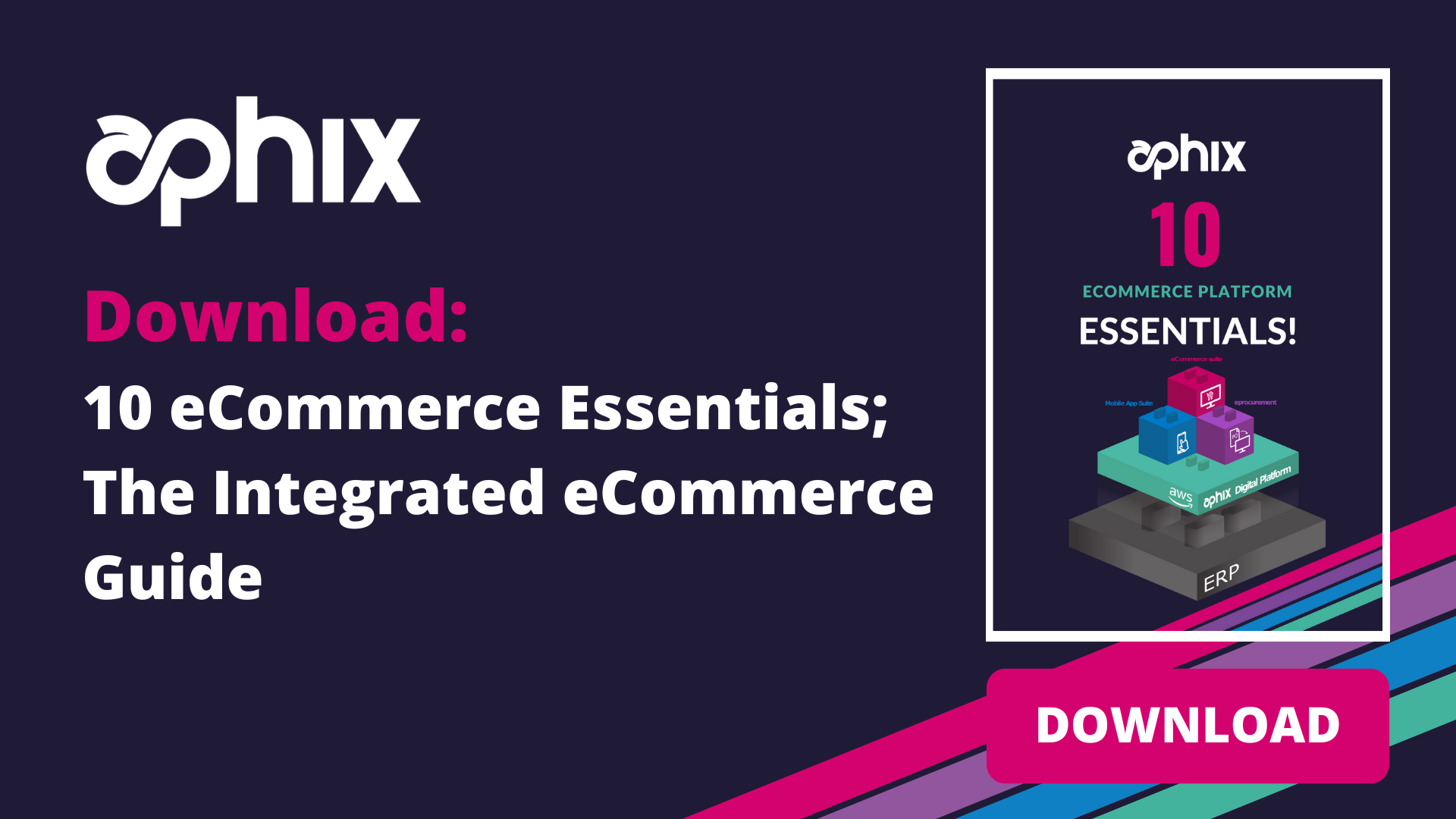eCommerce & ERP Integration: What it is and why it matters for B2B companies seeking to scale
eCommerce integration is the coordination between a company’s eCommerce site and back-end accounting and inventory (ERP) system. Proper integration brings cost savings, ability to scale operations and a much-improved customer experience.
eCommerce integration is the coordination between a company’s eCommerce site and the back-end accounting and inventory (ERP) system. Proper integration enables the flow of information bidirectionally between the two systems meaning data only needs to be entered into the system once.
This page tells you everything you need to know.
- What are the benefits of eCommerce Integration for a B2B company?
- Why should my business integrate?
- What are the drawbacks of manual processes?
- What are the obstacles?
- What are my options?
- What should I expect from eCommerce integration?
- Summary: 6 Big Benefits of eCommerce ERP Integration
What Are the Benefits of eCommerce Integration for a Company that Sells Business-to-Business?
Firstly, it results in various significant efficiencies.
Primary among those is that inventory levels will automatically update in two places:
- At the back end as the product is sold on your site (making life better for your in-house teams), and
- At the front end as the product gets added to your inventory (making life better for your customers!)
While many eCommerce businesses currently have one-way integration or batch updates, true eCommerce integration is achieved by two-way, real-time flow of data, such as that provided by Aphix's eCommerce and mobile apps cloud platform.
Why Should My Business Integrate?
Many businesses choose to fully integrate both systems as it means inventory and pricing information is available to customers and staff in real-time.
Secondly, and very importantly, as demand increases the need for additional staff to handle transactions is minimised.
Integrating your eCommerce sales channels with your ERP system allows you to operate more efficiently as a business in several key ways.
Your main types of data – order, inventory, item, customer and shipping/tracking – are communicated between your once independent systems.
What are the Drawbacks of Manual Processes?
When your eCommerce and other digital ordering processes are not automated, mistakes are commonplace.
- Shipping addresses can be entered wrong
- Incorrect inventory levels can lead to overselling
- Product information could be incomplete, incorrect, or even missing
- Ultimately, when two-way integration is not in place, your entire end-to-end customer experience is at stake
Are you willing to take the risk?
What Are the Obstacles to B2B eCommerce Integration?
The need for companies to integrate their ERP systems with eCommerce is often overlooked because of cost or the business disruption caused by having to change existing systems.
Okay, so it's not a minor undertaking.
We know that.
But we also know, after doing these hundreds of times for B2B customers in dozens of different industry sectors all over the world, that the cost quickly becomes worthwhile when you see the benefits.
Those benefits of eCommerce integration with your ERP system to (a) your customer's overall experience and (b) your operations are both immediate and long-term.
So What Are My Options?
Aphix Software's real-time eCommerce integration products WepShop & SalesRep automatically pass data between your systems. This eliminates your need to manually enter data from one system to another. While a typical web store can operate without integration into an ERP system, businesses need to address the amount of staff time that is wasted on tedious jobs that, when eliminated, save substantial time and money.
Our analysis has found that rolling out the Aphix cloud platform solution for web and mobile can make the entire ordering process up to 25 times more efficient!

The Aphix Cloud Platform for B2B eCommerce and digital ordering is up to 25 times faster than manual order processing
And it's more than just speed!
That leads to a virtuous circle where every part of your business wins.
There is better customer satisfaction, which leads to improved customer loyalty, followed by increased order size and more time for your staff to invest in the stuff that really matters instead of manual data processing and entry.
Manual data entry, updating product information and then uploading to your web store is a significant burden faced by many businesses.
Relying on decimating inventory across your systems by hand, or not being able to do it all, can cause you to oversell.
What to Expect with ERP Integration
If you want to be successful online and keep up with increased demand for digital ordering functionality, your eCommerce strategy should include integration to your ERP, account and inventory software.
WebShop, the Aphix eCommerce suite, provides the complexity to allow ERP integration, which in turn allows you to easily account for new orders and fulfil them, regardless of when or where the sale is made.
This solution also allows you to provide customers with access to their live account information, promoting further efficiencies through customer self-service.
The customers can access their accounts online 24/7 which also means they can view their account information without contacting you directly. Information on their order history, their invoices, real-time price and the real-time stock available to them can all be checked online.
When you integrate, you’ll enjoy many benefits like those listed below.
Summary: 6 Big Benefits of eCommerce ERP Integration
- Reduce manual entry to save time and increase output while reducing errors, when entering order, inventory, item, customer and shipping data.
- Streamline inventory synchronization, track updates, and provide accurate inventory levels to customers, without hiring staff to manage these tasks.
- Automatic notifications for customers when orders have been shipped and allow them to track the delivery of products.
- Simplify how you manage price and product changes to inventory.
- The flexibility to add multiple online (web stores and marketplaces) and offline (brick & mortar) sales channels, without losing operational efficiency.
- Handle increased demand in online orders without the need to add extra resources to cater for it!
Interested in learning more about how ERP and eCommerce integration can benefit your business? Download the guide below.






